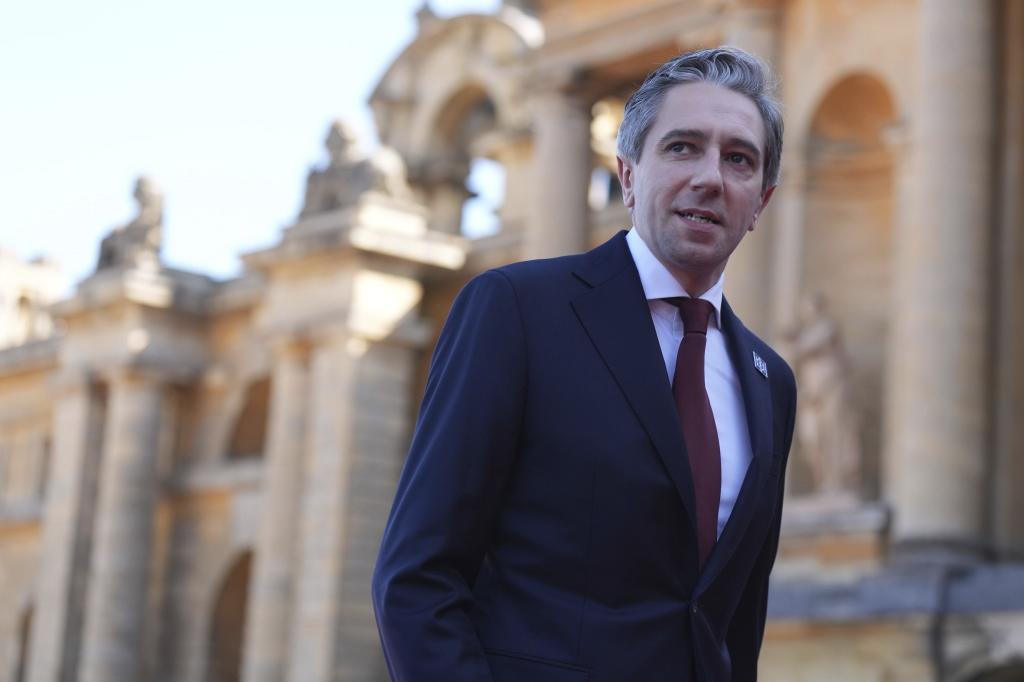The Christian Democrat Simon Harris (Fine Gael) and the centrist Micheal Martin (Fianna Fáil) will reaffirm the Government coalition of the last four years in Ireland, based on the provisional results of the elections held on Friday. Sinn Féin, the former political arm of the IRA, on the other hand, sees its ambitions to form a left-wing coalition frustrated. With 70% of the votes counted, Fianna Fáil would obtain 32 deputies, with Fine Gael and Sinn Féin tied at 28.
With 60% of the votes counted, Fine Gael would obtain 24 deputies, tied withFianna Fáil, with the same number of seats. Meanwhile, Sinn Féin would get one less, 23 deputies.
However, the two center-right parties may be forced to seek a third coalition partner to reach the 88 deputies that guarantee the majority in Parliament. The Labour Party and the Social Democratic Party (both exceeded 5% of the vote) are the two options being considered.
"There is a very clear path to Government," Martin anticipated, the first of the leaders of the major parties to renew his seat during the agonizing official count that could extend until Monday. With 25% of the votes counted, Fianna Fail (FF) had secured 13 deputies, compared to 11 for Fine Gael (FG) and 9 for Sinn Féin (SF).
Initial projections gave between 42 and 46 seats to Micheal Martin, the veteran leader most valued by the Irish. The youngest Prime Minister of Ireland, Simon Harris, would obtain between 38 and 42 seats, despite the drop in polls caused by his missteps during the campaign.
In the last four years, the leaders of FF and FG - the almost indistinguishable parties that historically have alternated in power in the century-long existence of the republic - agreed to take turns in rotating leadership. That option seems open this time as well, although Martin comes from a position of strength, and Harris has paid dearly for his inexperience after the last six months as 'taoiseach' (prime minister).
The two parties may need to support a third coalition partner, as they did in 2020 with the Green Party, which could lose up to 10 of the 12 seats it held until now. The center-right coalition could ultimately rely on independent candidates or seek support from the Labour Party, as in previous occasions.
Another option would be to support the Social Democratic Party of Holly Cairns, which gave birth on the same day as the elections. Both the Labour Party and the Social Democrats expressed their intentions in advance to explore the formation of a left-wing coalition, although the numbers don't add up.
Sinn Féin, which four years ago made history by becoming the most voted force, aspires this time to exceed 40 deputies. Its leader, Mary Lou McDonald, who achieved a comeback in the final stretch after the sexual scandals that eroded the party's reputation, expressed her intention to "talk to other forces to form a government."
McDonald made a last-minute call to voters to support other left-wing forces as their second preference. The complex Irish electoral system, of "proportional representation by means of the single transferable vote," leaves possible variations open until the last minute and is the reason why results are delayed for several days.
The voter turnout this time was around 60%, with the issue of access to housing and the cost of living as the two main priorities for the Irish, who ultimately voted for continuity despite the general discontent with the political class expressed in the failure of the constitutional reform referendum last March, which forced the resignation of then-Prime Minister Leo Varadkar and the rise of Simon Harris as the new leader of Fine Gael.
The winds of renewal initially favored Harris, known as the "Tik Tok politician" for his handling of social media and his appeal among young voters. However, his decision to call early elections turned against him. In just three weeks, and especially after the viral video of his clash with a social care worker, his approval ratings plummeted during the three-week campaign.
